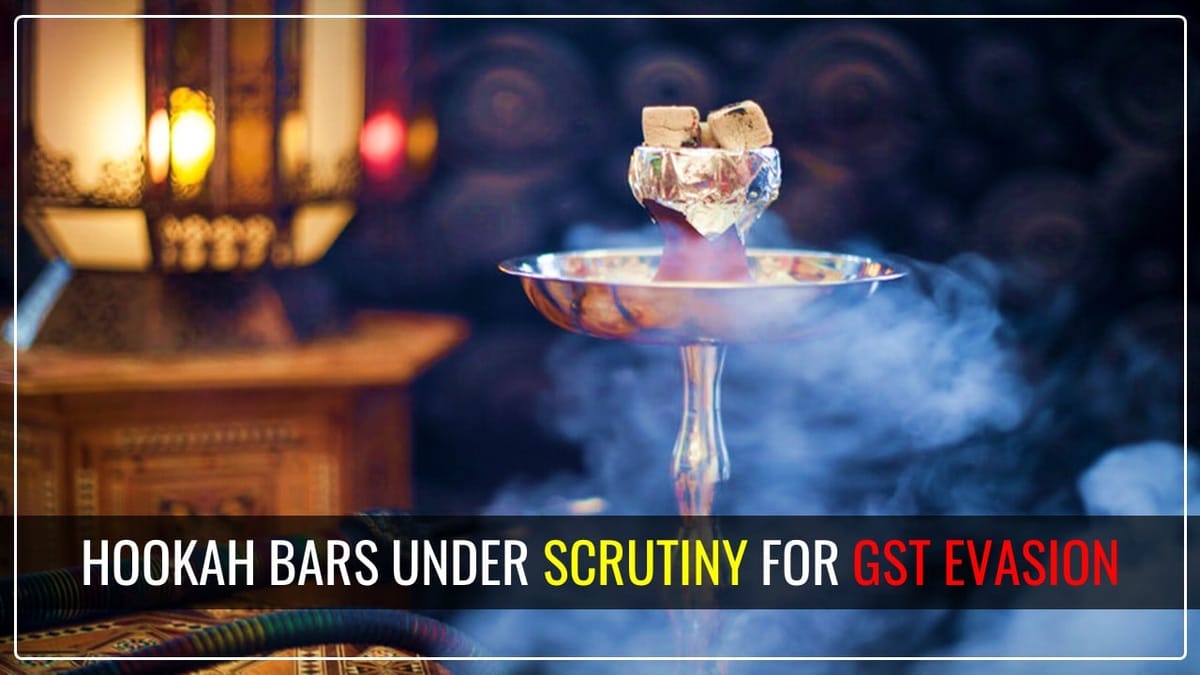Reetu | Feb 13, 2024 |

Hookah Bars under scrutiny for GST Evasion and Sin Tax
After a ban recently, hookah bars in Karnataka have come under scrutiny for allegedly evading GST and Sin Tax. Hookah bars, according to public health advocates, have been exploiting a loophole in the GST system to avoid the imposed 28% GST rate and a 72% cess, known as a “sin tax” by serving hookah as part of their food and beverage services. This disputed practice has sparked serious concerns among regulatory officials and public health advocates.
While the Shisha Cafes and Restaurants’ Association has filed a lawsuit claiming that the prohibition has resulted in job losses, public health advocates argue that their licences are for running restaurants, not hookah bars. As a result, there is no risk of losing jobs.
U.S. Vishal Rao, a member of the State government’s High Power Committee on Tobacco Control, stated that hookah bars use a strategy of presenting hookah as a component of food and beverages, subjecting it to a 5% GST rate.
“Proponents of this approach believe that hookahs can be classed as an “item for human consumption,” allowing them to fall into a lower tax bracket.
However, this is an important matter because hookah is not a conventional food item and is widely recognised to carry considerable health hazards, including potential injury to the respiratory and cardiovascular systems,” Dr. Rao explained.
“Furthermore, it has been noticed that hookah bars may fail to display health warnings when serving hookah, raising questions about their compliance with public health and safety standards. The lack of significant health cautions raises major concerns about the establishments’ commitment to protecting the well-being of their customers and the general public,” he stated.
Dr. Rao stated that the repercussions of this behaviour go beyond suspected tax evasion and address broader issues such as public health, consumer protection, and regulatory compliance.
“Regulators and policymakers are urged to address this matter with utmost urgency to ensure that sufficient measures are taken to prevent the exploitation of tax regulations and uphold public health and safety standards,” he added.
However, Mohammed Danish, president of the Shisha Cafes and Restaurants Association, stated that the business is legal and legitimate.
“Apart from purchasing tax, sales tax and several other licence fees, we pay GST ranging between Rs.15,000 to Rs.20,000 to the government monthly,” he went on to say.
“Hookah smoking could be compared to smoking cigarettes, and the High Court had previously ruled that a trade licence was enough to run a hookah bar, and if a dedicated smoking area is provided within a restaurant, then there were no legal issues running the business,” he went on to say.
He stated that on February 9, the Association filed a judicial challenge to the State government‘s order banning the use, sale, or service of smoking hookahs in Karnataka.
“We are planning to file another blanket petition on Tuesday,” he told.
Mr. Danish said that the hookah industry is under the jurisdiction of the Cigarettes and Other Tobacco Products (Prohibition of Advertisement and Regulation of Trade and Commerce, Production, Supply, and Distribution) Act and that the regulation should be identical to that of tobacco products.
He stated that Karnataka has over 900 hookah cafés, 500 of which are in Bengaluru and around 25,000 people are employed across all these hookah joints in the State.
He noted that there are 12,000 people employed in Bengaluru alone, many of whom are the breadwinners for their families.
In case of any Doubt regarding Membership you can mail us at contact@studycafe.in
Join Studycafe's WhatsApp Group or Telegram Channel for Latest Updates on Government Job, Sarkari Naukri, Private Jobs, Income Tax, GST, Companies Act, Judgements and CA, CS, ICWA, and MUCH MORE!"